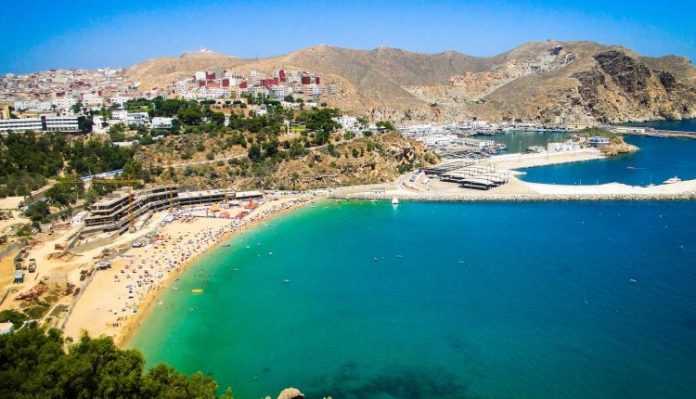This summer in Marrakech, the MACAAL is presenting a quietly provocative installation that challenges how we relate to water in an age of environmental crisis. Titled The Water Cabinet, the multimedia work by Austrian duo Hanakam & Schuller will run through September 7 in the museum’s Artist Room, in collaboration with curator Stella Reinhold-Rudas and the lush Anima Garden.
Rooted in the aftermath of Morocco’s severe 2022 drought, the installation explores themes that go far beyond climate. Structured as a four-part video piece, it weaves together ecological concerns, global power imbalances, and the symbolic narratives we attach to water. It builds on the artists’ earlier work, The Moist Cabinet, this time shifting focus to the hidden systems that sustain a thriving garden—systems that, once exposed, reveal a more complex and fragile reality.
Filmed on location in the surreal setting of Anima Garden near the now-dry Ourika River, the video captures the daily work of local gardeners and technicians. Speaking in Darija and Amazigh, they share frank accounts of the environmental challenges they face. Through their gestures and routines, the film uncovers subtle forms of resistance and cultural transmission, offering a grounded, human perspective on what might otherwise be seen as a decorative paradise.
Rather than romanticizing the garden, The Water Cabinet peels back the layers, revealing the hidden machinery—pumps, pipes, irrigation systems—that create the illusion of abundance. This documentary lens, softened by moments of quiet poetry, invites viewers to reconsider the manicured beauty of such places. Floating flower petals appear alongside images of a dry riverbed, creating a striking contrast that underscores the growing scarcity of water.
With this installation, MACAAL continues its commitment to fostering dialogue between contemporary African art and global environmental concerns. By centering the voices of those who work the land, The Water Cabinet calls attention to the unequal distribution of resources, the lingering impact of colonial legacies, and the persistent myths we attach to nature itself.





